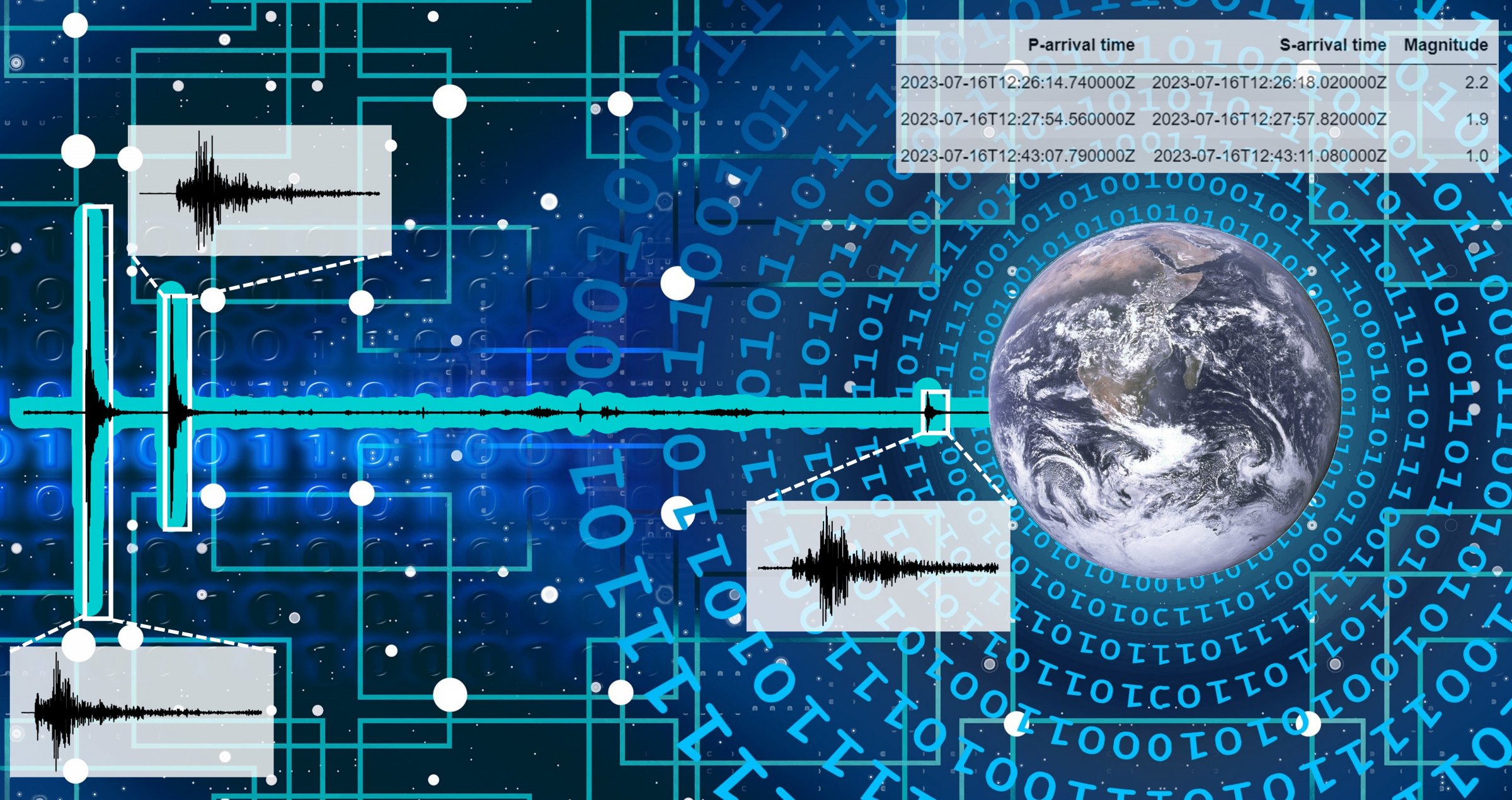October 2, 2023 6:00 PM / Scientists
Online Course on Single-Station Earthquake Monitoring
using Deep Learning-based Python Package SAIPy

Venue: online
Seismology has witnessed significant advancements in recent years with the application of deep learning methods to address a broad range of problems. These techniques have demonstrated their remarkable ability to effectively extract statistical properties from extensive datasets, surpassing the capabilities of traditional approaches to an extent. In this workshop we aim to demonstrate the use of Python Packages SAIPy and its extension on HR-GNSS data for the benefit of seismologists and interested geophysicists. SAIPy is an open-source python library where we strive to combine our previously published models into an automated pipeline for monitoring continuous seismic data so that it can be easily implemented by seismologists.
The Event:
Session 1 (Estimated duration: 1.5 hr):
We present SAIPy, an open-source Python package developed for fast seismic waveform data processing by implementing deep learning. SAIPy offers solutions for multiple seismological tasks such as earthquake detection, magnitude estimation, seismic phase picking, and polarity identification. This brings together the capabilities of previously published models such as CREIME, Dynapicker and PolarCAP and introduces upgraded versions of previously published models such as CREIME_RT capable of identifying earthquakes with an accuracy above 99.8% and a root mean squared error of 0.38 unit in magnitude estimation. These upgraded models outperform state-of-the-art approaches like the Vision Transformer network. SAIPy provides an API that simplifies the integration of these advanced models with benchmark datasets like STEAD and INSTANCE. The package can be implemented on continuous waveforms and has the potential to be used for real-time earthquake monitoring to enable timely actions to mitigate the impact of seismic events.
15 minutes break
Session 2 (Estimated duration: 1 hr.):
We introduce the application of yet another deep-learning model tailored to analyze earthquakes of large magnitude, by using a high-rate Global Navigation Satellite System (HR-GNSS). The displacement recordings by HR-GNSS stations are highly useful for earthquake analysis as it provides continuous measurements of ground motion. This kind of data analysis works as an auxiliary method to improve the magnitude estimation for large earthquakes in those cases when the waveforms recorded by inertial sensors are saturated. This model introduced in this part of the sessions is been developed to be included as complementary model of the SAIpy package.
Minimum requirements:
- Basic knowledge of Python; candidates must have Python already installed in their computers/laptops
- Some idea about installing and importing python packages
- It’s good to have some knowledge on libraries Numpy and Pandas, but not mandatory
- No prior knowledge of Deep Learning is required, but having some idea is an advantage.
- Some knowledge about Obspy, Keras and Pytorch could be beneficial but not necessary.
Interested candidates are required to register here by 18th September, 2023.
Two possible slots are available:
- 2nd October, 2023 - 18:00CET
- 4th October, 2023 - 11:00CET
Disclaimer:
Each session can have a maximum of 95 participants, which will be decided on a first-come-first basis. Due to this limitation, we would sincerely request any participant who might not be able to make it on the decided slot to let as know at least 48-hours prior to the session so that we can allow other interested candidates to participate.
Course Organizers:
- Ms. Megha Chakraborty
- Dr. Claudia Quinteros Cartaya
- Dr. Nishtha Srivastava (chair)